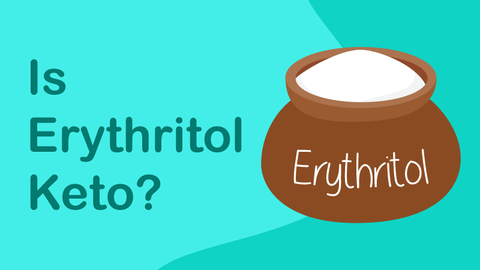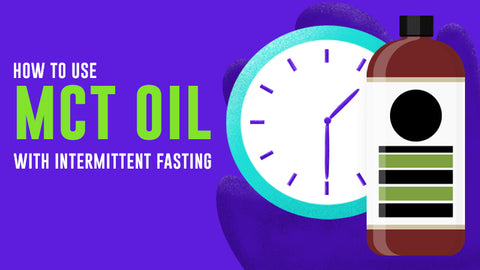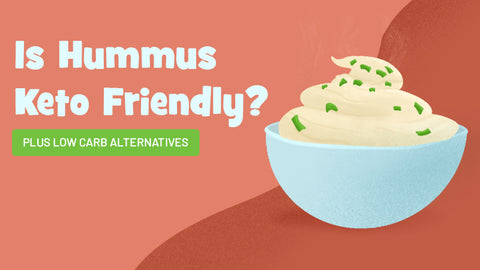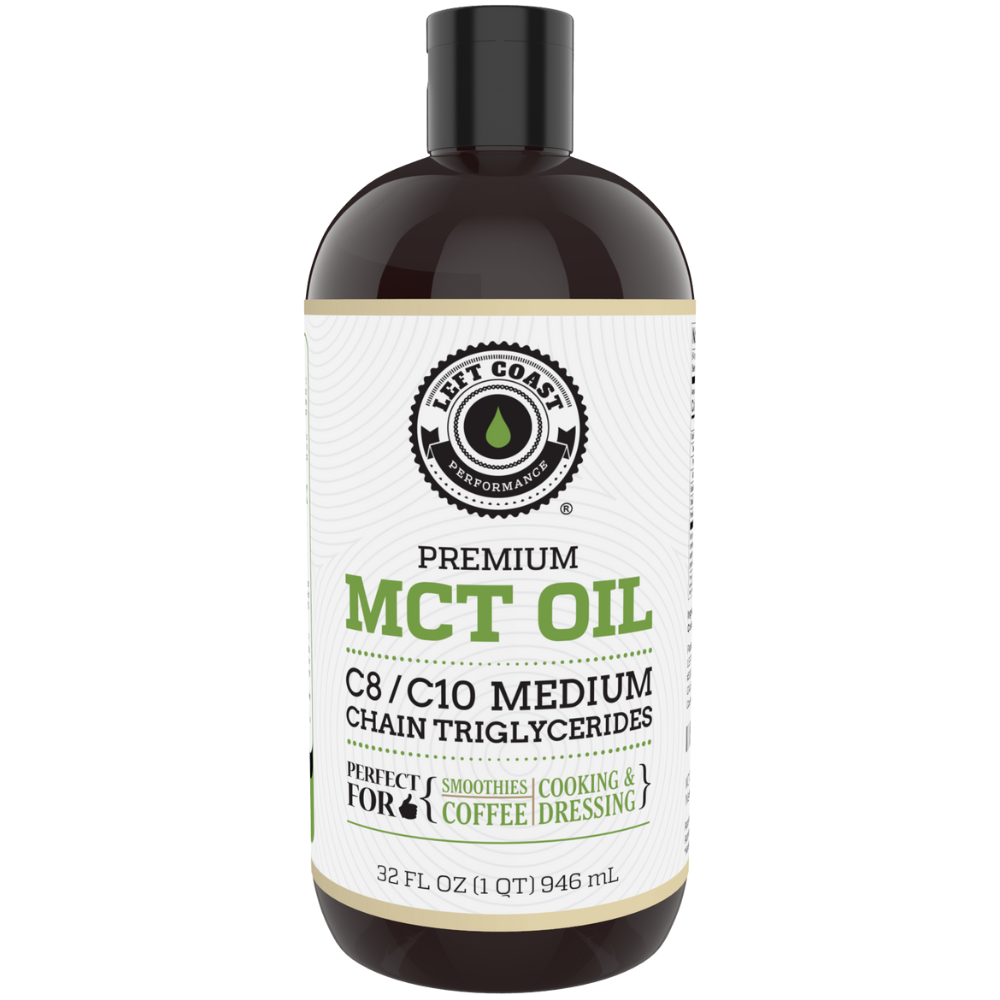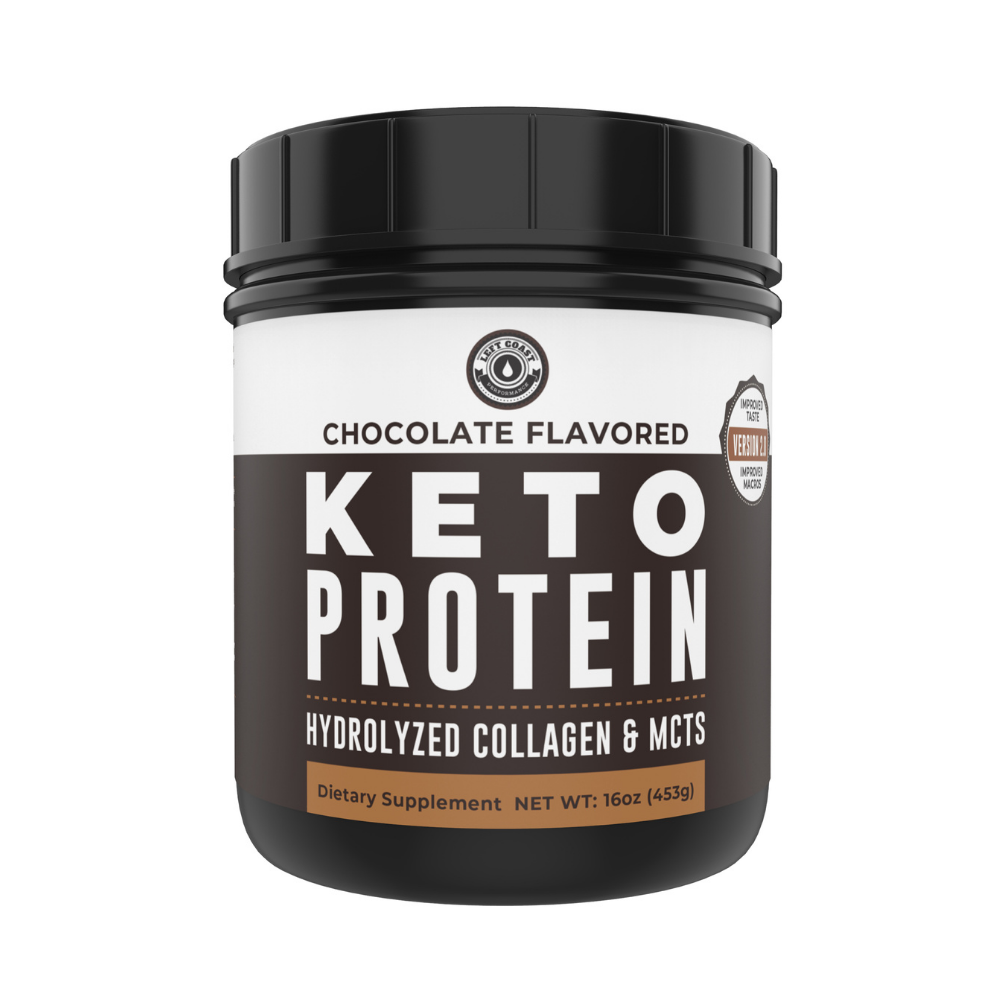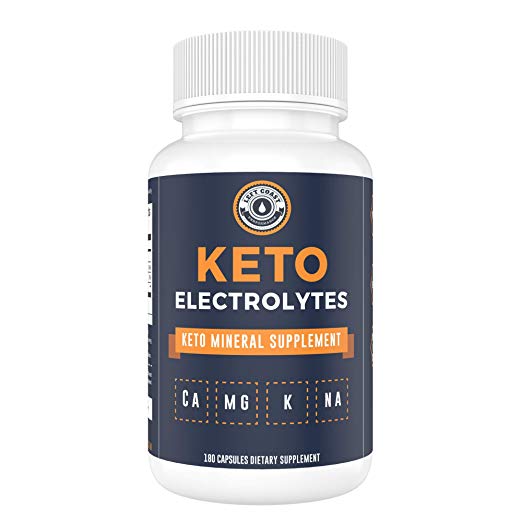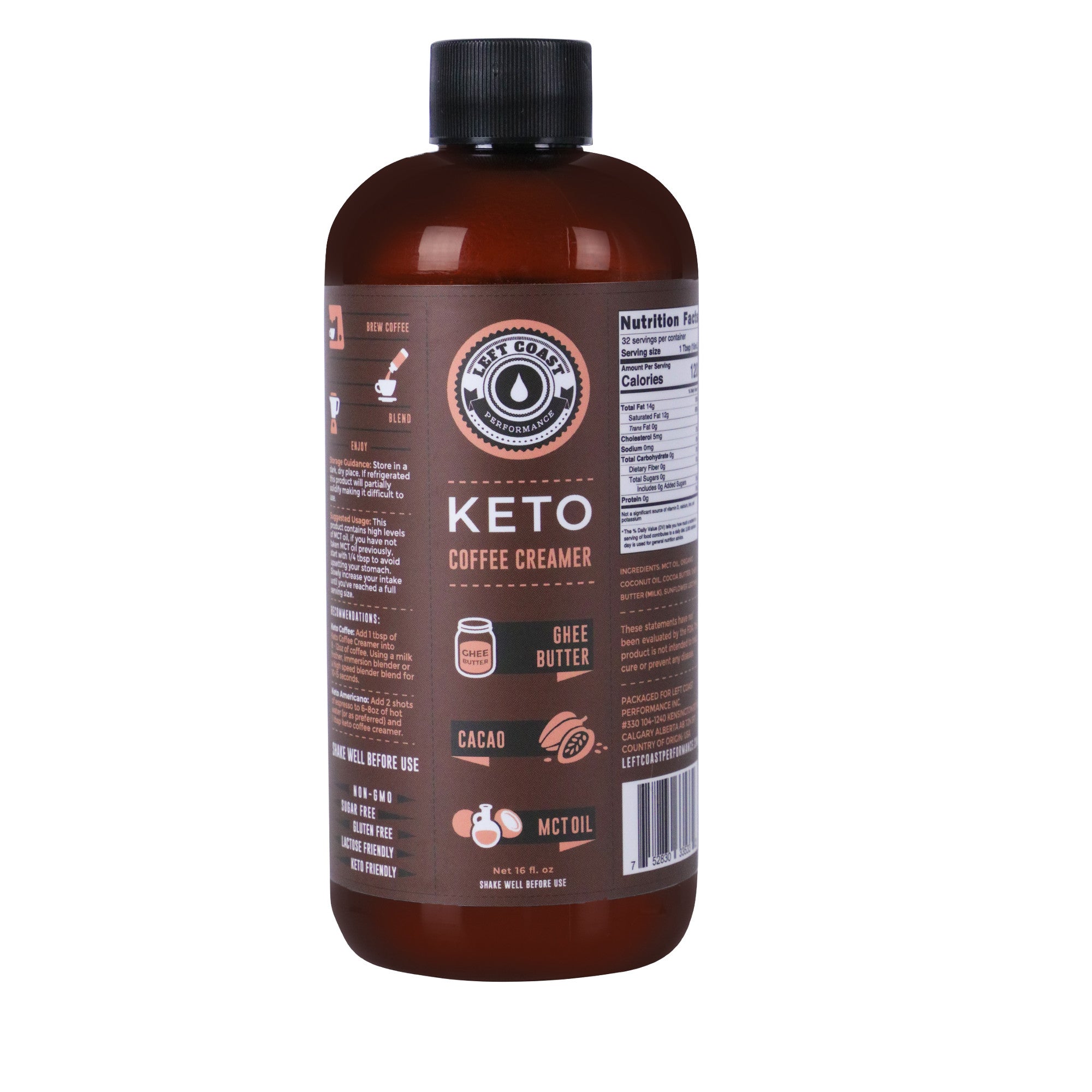Plant Based Keto
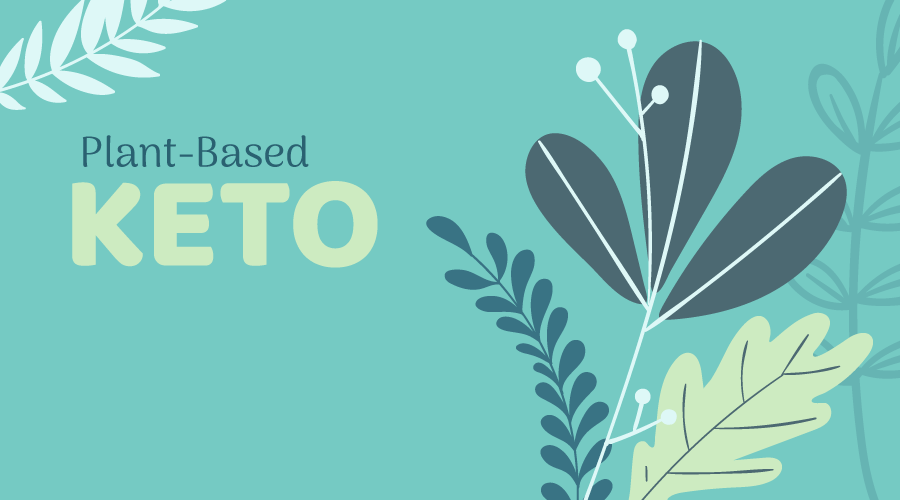
on April 19, 2019
The ketogenic lifestyle has started to branch out — literally. Plant-based keto is here, and it’s making waves in the high-fat, low-carb community.
If you know someone who is living the keto life, you may have a preconceived notion that this lifestyle is for carnivores only. However, more and more people are embracing a vegan version of this popular diet.
How Plant-Based Keto Works
The traditional ketogenic lifestyle rejects carbohydrates in favor of fats and proteins. By limiting carbohydrates to 50g or less per day, the metabolic state of ketosis begins. This natural process switches the body’s energy source from sugars to stored fats.
Plant-Based Keto follows all of the same rules as traditional keto, but in a way, they take it one step further with an additional restriction: everything you eat must be derived from plants, not animals.
The keto diet dictates that the majority of daily calories should come from fat. While many think “alright, bacon it is!”, vegans are reaching for plant-based fat sources like seeds, nuts, and coconut oil.
Essentially, the anticipated results of the plant-based keto lifestyle are the same as regular keto. Weight loss is a top motivator, along with other wellness factors like the reduction of inflammation and feeling all-around healthier.
Basic Principles of the Plant-Based Keto Plan
As stated above, the basic structure of the diet mirrors the traditional keto lifestyle. This means that 70-80% of your calories should come from high-fat sources, 10-20% from proteins and carbohydrates should be consumed sparingly.
The trick is to get the nutrients you need from all plant-based sources, similar to a vegan diet. Things like butter, cheese, and lean meats are all no-gos. Instead, plant-based alternatives to these items are chosen instead.
If you’re already used to eating a plant-based diet, you may have to reconfigure your eating habits in order to fit the keto mold. In fact, there are several foods that must be removed from your shopping list altogether.
High-carb vegan favorites that are not keto include lentils and legumes, winter squash, potatoes, and many non-berry fruits. These foods will cause your blood sugar to spike and kick you out of ketosis, so they’re best avoided at all costs.
By combining a plant-based diet with a ketogenic diet, it’s possible to hit your goals of weight loss and healthy living. The best part? It’s easier than ever to try out and maintain this unique lifestyle.
How Much To Eat
How much you should eat on the plant-based keto diet varies widely from person to person, which is why it is recommended to use a tool like a keto calculator. A keto calculator will take your suggested calorie intake and break it down into the amounts of macronutrients you’ll need per day.
In general, over-eating is not a problem on the plant-based vegan diet. In fact, some people experience difficulties with getting enough calories per day. By eating a variety of foods throughout the day, it’s possible to avoid this pitfall.
Going from Keto to Plant-Based Keto
If you’re already loving the keto lifestyle but want to take it to the plant-based level, there are a few key substitutions that will make your transition easier.
Tip #1: Swap coconut cream for heavy cream.
Coconut cream is an incredibly versatile ingredient and is the vegan alternative to heavy cream. Its thick texture and luxurious taste make it an ideal mix-in for recipes that call for dairy.
Tip #2: Replace butter with coconut oil.
Coconut oil holds a special place in all vegans’ hearts. This is because of its wide range of uses at different temperatures. Coconut oil can be used in liquid form as a high-heat cooking oil for sauteeing. At cooler temperatures, coconut oil solidifies, making it a good replacement for butter in all kinds of recipes.
Tip #3: Opt for vegan cheese.
Cheese is a big part of any keto diet, and when you go plant-based, you don’t have to go without. Vegan cheeses are popping up in grocery stores across the country, many made from high-fat sources like almonds and other nuts. They satiate that cheese craving while letting you keep your promise of going plant-based.
As many vegans already know, it’s very important to check the food labels when making plant-based substitutions. Just because something is labeled vegan doesn’t mean it’s keto. Some manufacturers replace animal products with carbohydrate-heavy fillers, so it’s always a good idea to check the nutrition info on packaging.
The Benefits of Going Plant-Based
Environmental
Veganism is known for being one of the greenest lifestyle choices an individual can make. It takes a large number of natural resources and energy to produce meat and animal products. Acres and acres are dedicated to raising livestock, feeding them, and slaughtering them. Gallons of water go to quenching their thirst, while gallons of gasoline go to transporting them to feedlots and slaughterhouses.
By eliminating these resource-hogging foods from your diet, you can help reduce the devastating effects of climate change.
Moral
Many people choose to go plant-based keto for moral reasons. They don’t want animals to needlessly suffer when humans are fully capable sustaining a 100% plant-based diet.
In addition to animal cruelty concerns, a moral argument can also be made on the basis of our broken food system. Going vegan progresses our society to a level playing field in terms of hunger and food inequality.
The plant-based keto path allows vegans to keep the moral benefits of avoiding animal products while enjoying all of the benefits that a keto lifestyle has to offer.
Metabolic
The argument for plant-based diets has always included radical health benefits. Now, there are more and more studies that back up this claim. Those who consume a vegan diet tend to be protected against certain diseases and have lower levels of bad cholesterol, blood pressure, and body mass indexes. Though more research is needed, studies show that a plant-based diet may lower your chances of developing heart disease, cancer, and diabetes.
Complications with the Plant-Based Keto Diet
Getting the appropriate amounts of certain vitamins and minerals has always been a cautionary tale for vegans. While it is possible to strike the perfect balance of daily nutritional values on a plant-based diet alone, adding in a keto element tends to throw a wrench in getting nutrients from foods alone. Many plant-based keto-ers take supplements of D3, B12, B6, DHA & EPA, iron, zinc, and taurine so that they feel their best and avoid deficiencies.
In addition to nutrient deficiencies, some people have a hard time getting enough calories period on the plant-based keto diet. Many plant-based keto enthusiasts suggest strictly monitoring calories with the aid of an app like MyFitnessPal.
Perfect Foods for Plant-Based Keto
Because plant-based keto is the ultimate restricted diet, there is not one “perfect food”. Instead, several combinations of foods are relied upon in order to reach a good balance of nutrients. This way, you can mix and match the items on your plate in order to cover all of your bases.
In terms of what you can eat, there are more options than you think. Three categories make up the go-to sources for nutrition on the plant-based keto diet:
High-Fat Foods
High-fat foods should be your number one source of calories for the day. An easy rule of thumb? Think of all of the different plant-based oils and add their origin crops. These are the high-fat foods that sustain the plant-based keto diet.
Favorites include:
- Almonds
- Olives
- Sunflower Seeds
- Coconut
- Avocado
- Coconut Oil
- MCT Oil
- Olive Oil
Good Sources of Protein
Tofu may be the most popular plant-based protein, but a variety of protein options exist for those going plant-based keto.
- Tofu
- Tempe
- Peanut butter
- Seitan
Non-Starchy Vegetables
Starchy veggies like potatoes, winter squashes, and corn are not plant-based keto-friendly. Though they have good amounts of fiber, they are always too high in carbohydrates for your body to consume and remain in ketosis. For this reason, it’s best to stick to non-starchy vegetables like these:
- Kale
- Spinach
- Tomatoes
- Broccoli
- Cauliflower
- Celery
- Green Onions
- Bell Pepper
- Radishes
- Asparagus
- Arugula
- Cucumber
How To Get Started
Getting started with plant-based keto is simple. Start out by calculating the number of macronutrients you need per day. A keto calculator tool makes this easy.
Next, hit the grocery store. When making a dietary lifestyle shift, it’s important to make it as easy as possible on yourself. Make sure you always have vegan, keto-friendly food around the house plus snacks for on-the-go.
Meal prep is especially helpful for going plant-based keto. You can buy all the ingredients you need for a full week of food, then refrigerate or freeze what you need according to your schedule.
If you’re looking for plant-based keto inspiration, Left Coast Performance stores might just have you covered. We have lots of great, natural, plant-based products (like our MCT oil, which is made from coconuts) that fit right into this lifestyle.


